Strategic Analysis Caucasus Brief
Bi-weekly review (23. 4. – 7. 5. 2023)
Tomáš Baranec
Armenia
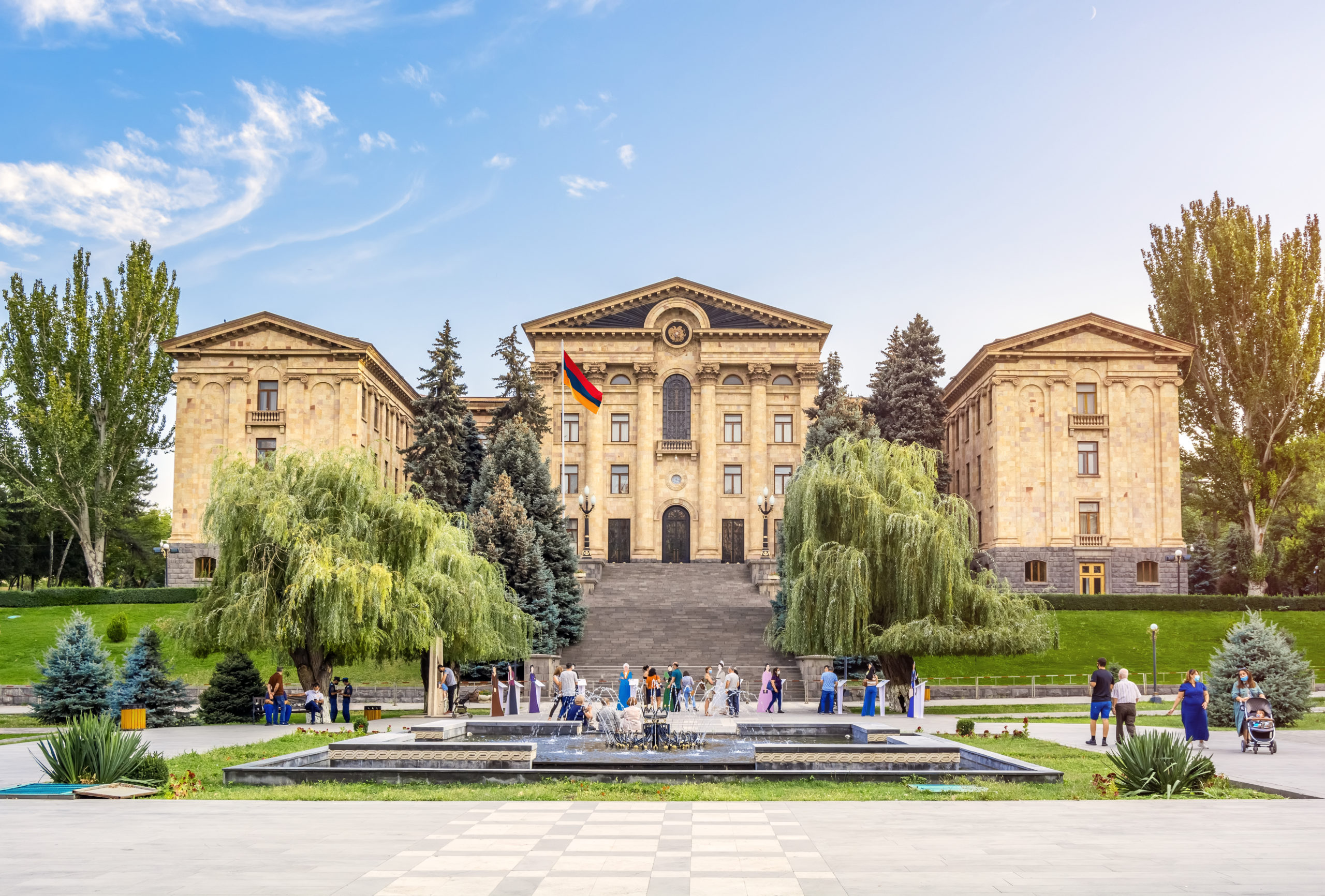
Yerevan. Photo: Andrei Bortnikau/ Shutterstock.com
Russia tightens economic sanctions against Armenia
In late April, Armenian truckers and farmers reported that they could no longer export agricultural products to Russia. Armenian opposition MP Garnik Danielyan wrote about this on Facebook. “Georgia informs that the Russian side has decided to ban the entry of Armenian trucks. Armenian trucks have stopped in Georgia for days, waiting for an explanation. The Armenian side should demand an explanation and apply all necessary measures to provide an urgent solution to the problem,” the opposition lawmaker added.
In addition, trucks bringing liquefied gas to Armenia cannot enter Russia for refuelling, causing the price of liquefied gas in Armenia to rise by almost 80% in the last month. According to some sources, the Russian side attributes these restrictions to technical problems. However, it is clear that what is happening is an economic sanction against Armenia with a political agenda behind it, writes the Caucasus Watch.
„As a result of Russia’s economic war against Armenia, ordinary citizens and businessmen are the first to suffer, and the public should be aware of these hostile steps,” the source says, as cited by the Caucasus Watch.
Armenian-Russian relations are in crisis over Azerbaijan’s installation of a checkpoint in the Lachin Corridor, which connects Armenia and Nagorno-Karabakh. Armenia says the Lachin corridor should be controlled exclusively by Russia and that the presence of Azerbaijani border guards on the ground is unacceptable.
For its part, Azerbaijan insists that Armenia is misusing the Lachin Corridor to smuggle weapons, landmines and ammunition into Karabakh.
Sources:
-
News.am, „Opposition MP: Armenia trucks stuck in Georgia for days“, https://news.am/eng/news/757099.html
-
Caucasus Watch, „Russia Tightens Economic Sanctions Against Armenia“, https://caucasuswatch.de/en/news/russia-tightens-economic-sanctions-against-armenia-says-armenian-pro-government-source.html
-
MGEDSYAN Arshaluis, Eurasianet.org, “As Armenia seeks allies in the West, its economic dependence on Russia grows“, https://eurasianet.org/as-armenia-seeks-allies-in-the-west-its-economic-dependence-on-russia-grows
Armenia and Azerbaijan discussed „ethnic minorities“ and „normalisation“ in Washington
From May 1-4, talks were held in Washington between the Foreign Ministers of Armenia and Azerbaijan, mediated by US Secretary of State Antony Blinken. This was the most extended round of negotiations between Ararat Mirzoyan and Jeyhun Bayramov.
No joint statement was signed, however, with the parties limiting themselves to a joint press release: “Ministers and their teams have made progress in mutual understanding on some articles of the draft bilateral agreement “On peace and the establishment of interstate relations, while positions on some key issues still diverge.”
Blinken, who mediated talks, stated on Friday that “progress” had been made despite “differences on key issues”, a sentiment echoed by official statements from Armenia and Azerbaijan. “I hope that both ministers, like me, believe that a peace agreement is not far off, and it will provide a lasting peace for the peoples of Armenia and Azerbaijan. This peace will have a great impact not only on the life of the two peoples but a regional and more global impact. It’s tough, but the desire to move forward is real, and as I mentioned, we have made significant progress over the past few days. It seems that a final agreement is not far off, and we are determined to reach this agreement,” Blinken optimistically stated in his assessment.
Nevertheless, Armenian Prime Minister Nikol Pashinian claimed he still sees a “huge difference” between the wording of a draft peace agreement for Armenia and Azerbaijan and the two sides’ positions despite reported progress in US-hosted bilateral talks.
Sources:
- JAM News, „Foreign Ministers of Armenia and Azerbaijan disagree in Washington, but US Secretary of State optimistic“, https://jam-news.net/armenia-azerbaijan-talks-in-washington/
- AVETISYAN Ani, AGHAYEV Ismi, „Armenia–Azerbaijan peace deal ‘within reach’, Blinken says“, https://oc-media.org/armenia-azerbaijan-peace-deal-within-reach-blinken-says/
- RFE/RL, „Pashinian Plays Down Reports Of Progress After Armenian-Azerbaijani Talks In Washington“, https://www.rferl.org/a/armenian-azerbaijan-nagorno-karabakh-peace-talks-us/32399841.html
Turkey restricts airspace to Armenia over genocide memorial
On April 29, Turkey closed its airspace for flights of the Armenian Flyone Armenia airline to Europe without warning. As a result, the airline’s Paris-Yerevan flight was forced to land in Chisinau and was able to return to “Zvartnots” airport only on the night of April 30.
Later, on May 2, the Turkish aviation authorities did not provide FLYONE ARMENIA with the overflight opportunity through Turkish airspace. Considering this circumstance, the company had to cancel the Yerevan-Paris-Yerevan flight.
Turkey’s foreign minister has said the country closed its airspace to Armenian flights in response to a new monument that was erected in Yerevan commemorating a program to assassinate perpetrators of the Armenian genocide. The monument “glorifies terrorists,” Turkish Foreign Minister Mevlut Cavusoglu said in an interview with NTV television on May 3. “In connection with this, we closed our airspace for Armenian planes.”
Cavusoglu added that Armenia’s statements and policies are unbalanced. “In some cases, we see a positive statement, and then something completely opposite is done. Unfortunately, we do not see the desired sincerity. The cooperation between Armenia, Azerbaijan and Turkey mostly comes from the interests of Armenia”.
In his turn, Armenian Prime Minister Nikol Pashinyan, in an interview with RFE/RL on May 5, referring to this incident in Armenian-Turkish relations, stated that a wrong decision was made on the issue of the Nemesis monument, and the implementation of that decision was also wrong.
The monument was inaugurated on April 25, the day after Armenians traditionally commemorates the genocide. It is dedicated to Operation Nemesis, the effort in the late 1910s and early 1920s by Armenian militants and operatives to assassinate Ottoman officials responsible for the Armenian genocide a few years earlier (1915). Up to one and a half million Armenians were killed in the genocide.
Turkey continues to deny that the killings amounted to genocide, and following the erection of the monument, the foreign ministry issued a statement objecting to it.
Operation Nemesis represented “a record of the fact that throughout history, crimes do not go unpunished regardless of how the international community treats it,” Yerevan Deputy Mayor Tigran Avinyan said at the monument’s inauguration ceremony, Armenpress reported. “What Nemesis did was understandable for everyone, it was fair for everyone, but our goal should be to prevent possible crimes, to create mechanisms to bring criminals to justice. That should be our main message,” he added.
Sources:
-
KUCERA Joshua, Eurasianet.org, “Turkey restricts airspace to Armenia over genocide memorial“, https://eurasianet.org/turkey-restricts-airspace-to-armenia-over-genocide-memorial
-
News.am, „Turkish airspace closed for Armenian PM’s plane“, https://news.am/eng/news/758560.html
-
MKRTCHYAN Marina, Arminfo, „Turkey closed its airspace to VIP planes from Armenia: Pashinyan says the opening of Nemesis monument in Yerevan is a mistake“, https://arminfo.info/full_news.php?id=76181&lang=3
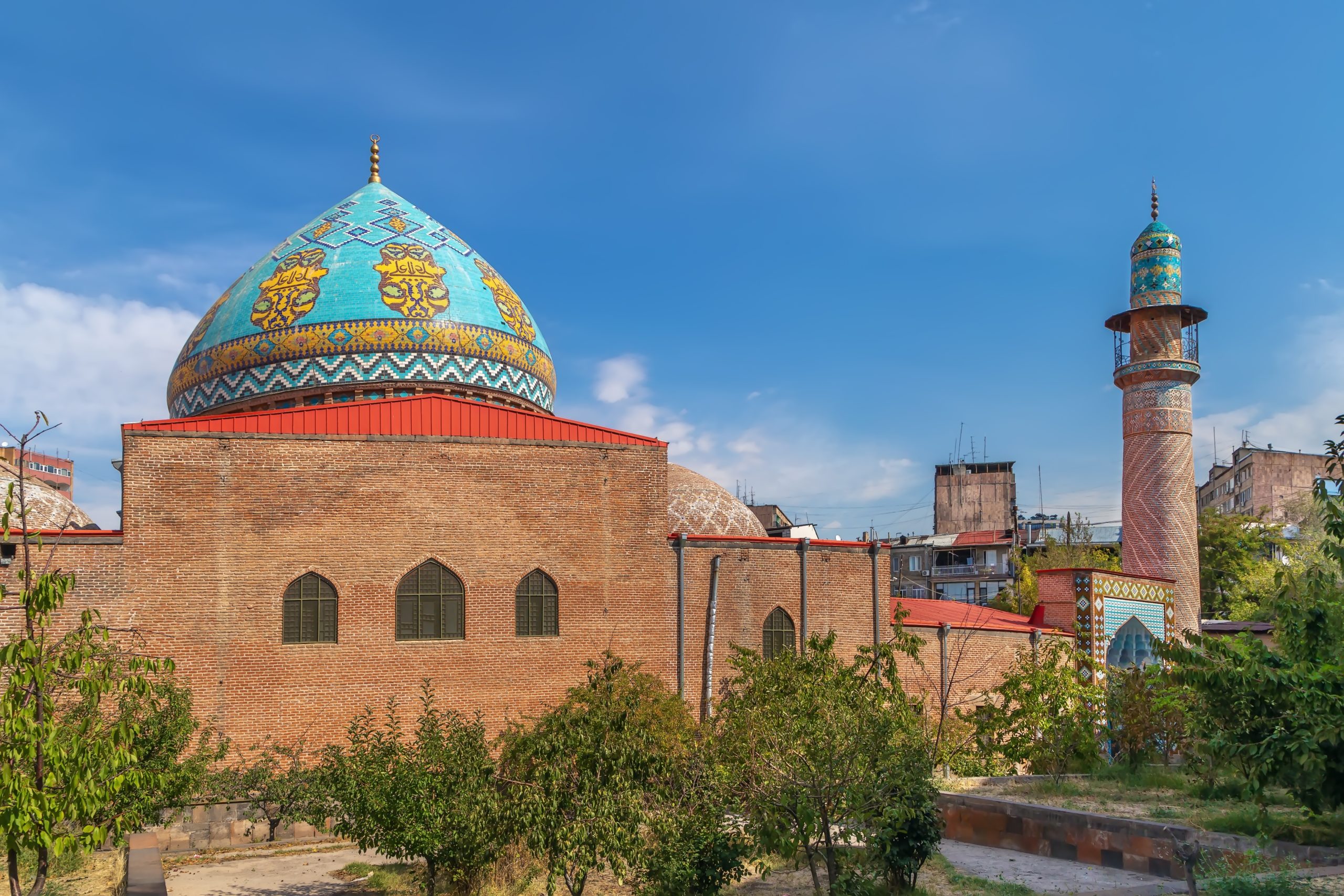
Yerevan, Armenia. Photo: Shutterstock.com
Azerbaijan sets up a checkpoint on the road connecting Armenia and Karabakh
On April 23, Azerbaijan set up a checkpoint on the only land link between Armenia and the de facto Nagorno-Karabakh enclave, sparking an angry response from Yerevan. “The units of the Azerbaijani Border Service established a border checkpoint on the sovereign territory of Azerbaijan, at the entrance of the Lachin-Khankendi road,” the Azerbaijani state border service said.
Azerbaijan has been demanding for months to establish a checkpoint on the road, known as the Lachin corridor. However, doing so seemingly risked a confrontation with the Russian peacekeepers, who are supposed to be the sole providers of security on the road. When Azerbaijani forces finally managed to install the checkpoint on April 23, though, they did so with no apparent confrontation with the Russians, reports Eurasianet.
Announcing the creation of the checkpoint, Azerbaijan’s State Border Service noted that the Russian peacekeeping contingent “was informed” about the move. Azerbaijan’s Foreign Ministry said that the checkpoint “shall be implemented in interaction with the Russian peacekeeping force.”
According to the Armenian analyst Tigran Grigoryan, “It remains unclear how the peacekeepers, who have fortified positions near the bridge, allowed Azerbaijani forces to carry out this operation.” The checkpoint will have a little immediate impact on the ground: The road had already been effectively blocked since December by a group of Azerbaijani government-sponsored “eco-activists”. It prevented Armenians (at least those unable to pay black-market smuggling prices) from travelling in or out of the territory. But the checkpoint represents another tightening of the noose around Karabakh, writes Eurasianet.
For nearly 24 hours, there was no comment from Moscow, and the peacekeepers’ most recent daily bulletin, released several hours after news broke about the checkpoint, did not mention it at all. In the afternoon of April 24, the Russian foreign ministry issued a statement in which it didn’t mention the checkpoint directly or the peacekeepers’ actions vis-a-vis its establishment. The statement suggested both sides were to blame, criticising “unagreed changes in the functioning regime of the Lachin corridor or attempts to use it for aims inconsistent with a peaceful agenda.”
Armenian authorities blamed Russia for the checkpoint. At a government session on April 27, Armenian Prime Minister Nikol Pashinyan said the Russian peacekeeping contingent in Karabakh should control the Lachin corridor and ensure its regular operation. “Apart from Russia, no one else should exercise control in the Lachin corridor. Azerbaijan should not impede the free movement through the corridor. This is stipulated in the November 9, 2020, trilateral statement,” he said. Similar criticism was later repeated by the Armenian Security Council Secretary Armen Grigoryan.
In her reaction, Russian Foreign Ministry Spokeswoman Maria Zakharova said that it was essential that the official Yerevan contribute to the search for mutually acceptable solutions after Azerbaijan set up a checkpoint in the Lachin corridor on April 23, effectively obstructing the movement of people and traffic from and to Nagorno-Karabakh.
Furthermore, on May 1, the de facto authorities in Stepanakert accused the Russian peacekeepers of tricking residents of Nagorno-Karabakh into passing through the Azerbaijani checkpoint on the Lachin corridor, falsely promising that they would not have to undergo checks by the Azerbaijani border troops.
Sources:
-
KUCERA Joshua, Eurasianet.org, “Azerbaijan sets up a checkpoint on the road connecting Armenia and Karabakh“, https://eurasianet.org/azerbaijan-sets-up-checkpoint-on-road-connecting-armenia-and-karabakh
-
France 24, “Azerbaijan sets up a checkpoint on the land link between Armenia and Nagorno-Karabakh“, https://www.france24.com/en/europe/20230423-azerbaijan-sets-up-checkpoint-on-land-link-between-armenia-and-nagorno-karabakh
-
AVETISYAN Ani, OC Media, „Nagorno-Karabakh residents ‘tricked’ into passing Azerbaijani checkpoint“, https://oc-media.org/nagorno-karabakh-residents-tricked-into-passing-azerbaijani-checkpoint/
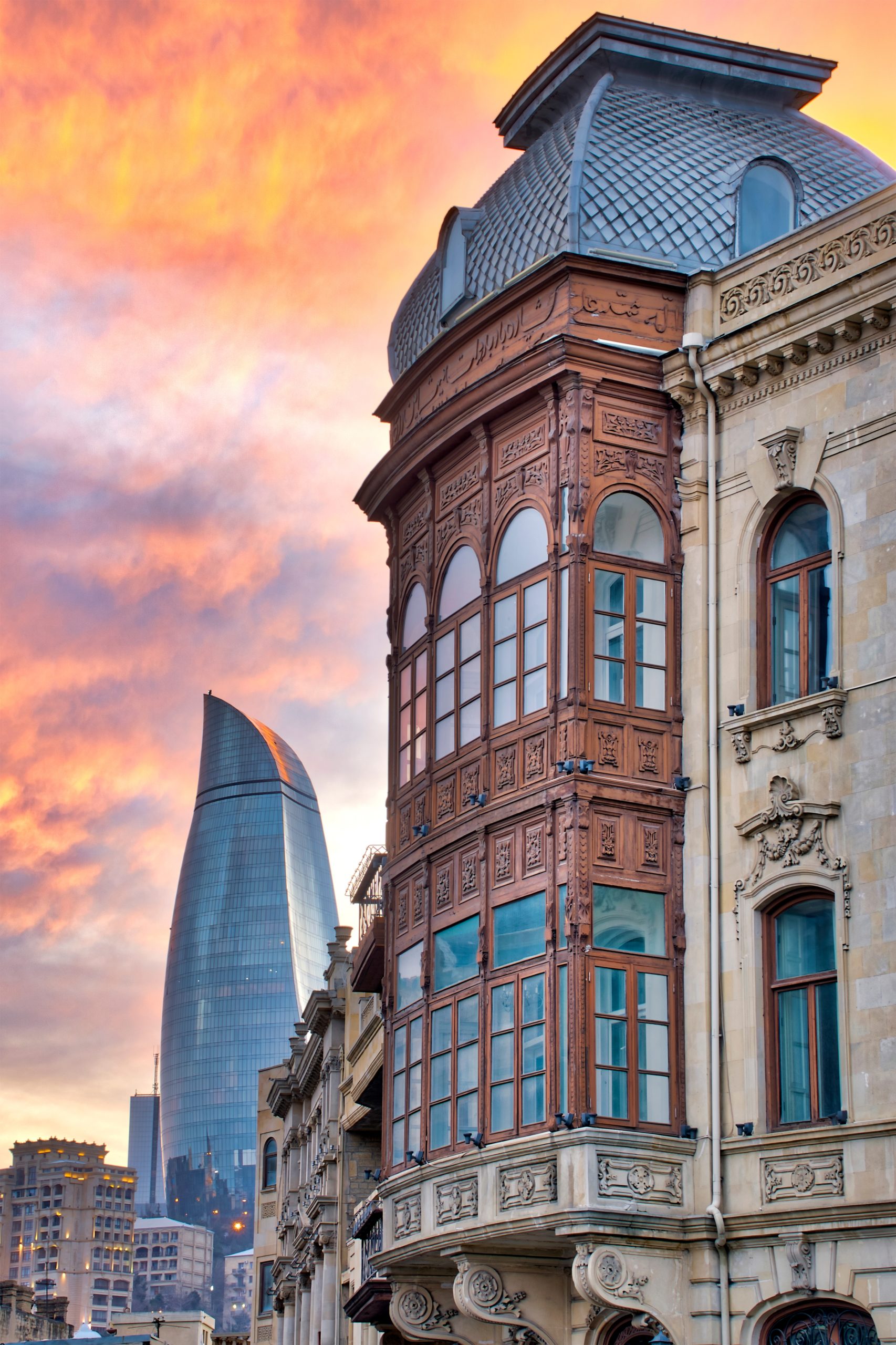
Icheri, Azerbaijan. Photo: Shutterstock.com
The villages of the Lachin Corridor face a „double blockade“
Residents of four villages in de facto Nagorno-Karabakh: Yeghtsahogh, Hin Shen, Mets Shen and Lisagor- have appeared in a complete blockade after Azerbaijan established a checkpoint at the start of the Lachin corridor, the only land route linking Armenia to the region, de facto State Minister of Nagorno Karabakh Gurgen Nersisyan said in a Facebook post. He added the villages are cut off from both Stepanakert and Armenia.
“I am in touch with the administrations of these communities. Their leaders presented the problems that may arise in the coming days if the complete blockade continues. Before Azerbaijan established the checkpoint and blocked the road in this section, three children from the Mets Shen community, one of whom was three years old, had been taken to Armenian Goris, and now they cannot return to their parents,” Nersisyan wrote.
“The Red Cross vehicles are seen passing, the Russians are seen passing, but no one stops her“, says Samvel Tavadyan, a teacher in the village of Mets Shen. “We survive with what we have at the moment, what is in the houses, what we managed to buy in time, but it will be enough for a week or two “, Tavadyan tells OC Media. “Then? “. Mets Shen and three other nearby villages have a total of around four hundred residents, mostly elderly people, Tavadyan says. The school he teaches in has only nine pupils.
While the villages lie close by, even the connections between them are now at risk, as the fuel is running out. “Before, we were surrounded on three sides; now — four “, Tavadyan says. “It feels like a cage “.
According to local de facto authorities, the humanitarian aid sent through Russians was also suspended and partially resumed when peacekeeper vehicles began entering the region after April 26.
While Mets Shen is around an hour’s drive from both Stepanakert and Goris, residents often went to Goris in Armenia. “It was more convenient, and the goods are cheaper there”, Tavadyan says. Davit Davtyan, the Mayor of Mets Shen, says there is only one difference between their situation and that of the rest of Nagorno-Karabakh — “we are surrounded on both sides”.
Davtyan says the people still have food but that the situation varies in different families — those with livestock or who stockpiled supplies are good. Still, others are in a more difficult position. Since April 23, Azerbaijan has closed the Hakari bridge on the Armenia-de facto Nagorno Karabakh alternative road and then officially announced the installation of a checkpoint there.
Sources:
-
Vanyan Murat, Avetisyan Ani, OC Media, “The villages of the Lachin Corridor face ‘double blockade’“,https://oc-media.org/features/the-villages-of-the-lachin-corridor-face-double-blockade/
-
Arka.am, “Four Artsakh villages are in complete blockade because of installation of the checkpoint by Azerbaijan“, https://arka.am/en/news/politics/four_artsakh_villages_are_in_complete_blockade_because_of_installation_of_checkpoint_by_azerbaijan/
-
News.am, „Karabakh ombudsman: Azerbaijan takes a blatantly brazen step that directly contradicts tripartite statement“, https://news.am/eng/news/756570.html
New Commander Appointed to Russian Peacekeeping Forces in Karabakh
On April 26, the Ministry of Defense of Russia reported that a new commander was appointed to the Russian peacekeeping forces in de facto Nagorno-Karabakh. According to the information, on April 25, the Deputy Commander-in-Chief of the Ground Forces of the Russian Armed Forces, Colonel-General Alexander Lentsov, was appointed the commander of the Russian peacekeeping contingent in the region. Before that, the commander of the peacekeeping contingent was Major General Andrey Volkov.
Alexander Lentsov worked as a platoon commander of the 103rd Airborne Division. He came to Afghanistan in 1979. From 1980-1982, he was the airborne training instructor and the intelligence brigade commander. During the two years he led the reconnaissance group, he did not lose a single fighter and completed many important tasks. In 1982, he was appointed the intelligence commander of the 234th parachute regiment, and in 1982-1983, the chief of staff of the 234th parachute battalion. From 1983-1986, he was the battalion commander of the 234th Airborne Regiment.
Lentsov took part in Afghanistan, First Chechen, Second Chechen, Bosnia, de facto South Ossetia, Donbas, and Syria wars. From 2013 to 2020, he served as deputy commander-in-chief of Russia’s ground forces. He received the rank of general in 2014. During 2009-2013, he worked as the deputy commander of the Russian Air Force. In 2015, he took part in Russia’s military operations in eastern Ukraine. Since January 22, 2020, he has been an adviser to the Minister of Defense of the Russian Federation.
On December 5, 2022, Colonel General Lentsov, then an adviser to the Russian Defense Minister, handed over state awards to the military personnel of the Airborne Forces, “who showed courage and heroism during a special military operation in Ukraine.” Since 2016, General Lentsov has been the President of the International Tank Biathlon Federation.
Sources:
- Caucasus Watch, „New Commander Appointed to Russian Peacekeeping Forces in Karabakh“, https://caucasuswatch.de/en/news/new-commander-appointed-to-russian-peacekeeping-forces-in-karabakh.html
- Mediamax.am, “5 facts about Colonel General Alexander Lentsov“, https://mediamax.am/en/news/parzabanum/51107/
Large anti-Western rally held in Tbilisi
On April 30, a large rally was held in Tbilisi on Republic Square, the slogan of which was “Georgia First.” The action organiser is the “Unknown” movement led by a Georgian singer and TV presenter, Gia Gachechiladze, reports Caucasus Watch.
The rally was announced during the “Ucnobis Kidobani” TV show on the “Maestro” TV channel, known for its pro-government and anti-western rhetoric, in response to the March 7-9 demonstrations opposing the “Foreign Agents” laws. Among the main messages voiced at the rally were the appeals to “hold the United National Movement accountable”, criticism of Georgia’s “sworn partners” who “interfere” with Georgia’s internal affairs and try to drag it into war, anti-free trade, anti-LGBT messages and expressions of gratitude to the GD government for preserving peace in Georgia.
According to Civil.ge, themes broadly similar to Kremlin-style propaganda, such as the “unacceptability of ‘Parent #1 and Parent #2’ family arrangements”, featured prominently at the rally. The event ended with the organisers presenting their demands to the government on behalf of the rally participants.
The demonstration had a strongly anti-opposition tone. Rusudan Sharadze, daughter of the former politician and MP, the late Guram Sharadze, addressed the crowd at the Republic Square rally, stating that her father was killed for the same cause they are fighting for today. She stressed the importance of holding the “National Movement” accountable for her father’s death.
Vato Shakarishvili, the former member of Tbilisi City Assembly (Sakrebulo) from the ruling GD, the founder of the conservative portal “Georgia First,” referred to Georgia’s international partners as “sworn friends” and urged the crowd to consider what Georgia really needs. He questioned the value of pursuing unrealistic plans and goals of joining NATO, instead proposing that Georgia prioritise neutrality.
Many of the rally’s attendees arrived from different regions of Georgia by minibuses in an organised manner and left using the same mode of transportation. Several dozen minibuses were spotted on-site. One participant informed the “TV Formula” company that their boss had organised the trip to Tbilisi, and they arrived with their colleagues.
At the end of the rally, the demonstration organisers presented a letter to the government outlining their demands. Among the demands is a political and legal assessment of the “dictatorial regime” of the “National Movement,” along with the “enforcement of appropriate legal mechanisms”. Other demands include: (A.) Enforcing the law equally for everyone, regardless of political, sexual or other orientation. (B.) In the case of polarisation and political crisis, the Georgian people must be allowed to express their opinion through a plebiscite to avoid revolutions and destabilisation; (C.) The government should implement a sovereign economic policy to eliminate unemployment, low wages, and poverty; (D.) The politicians of the European Union and other countries must respect the state sovereignty of Georgia and complete non-interference in internal public-political affairs. Relations between the parties should be based on respect and partnership; (E.) Fundamental education should be introduced in schools, stopping the ideological processing of young people in educational institutions; (F.) An effective state program should be implemented to correct the demographic situation; (G.) LGBT propaganda should be banned by law.
Members of the parliamentary majority and the Mayor of Tbilisi positively assessed a recent rally. Among those who defended the rally and the people who participated in it were Parliament Speaker Papuashvili, Georgian Dream MP Nino Tsilosani and Tbilisi Mayor Kakha Kaladze.
Sources:
-
Caucasus Watch, „Large Anti-Western Rally Held in Tbilisi“, https://caucasuswatch.de/en/news/large-anti-western-rally-held-in-tbilisi.html
-
Civil.ge, „Ultra-Conservative Movement Presents its Demands at April 30 Rally“, https://civil.ge/archives/539635
-
Civil.ge, „Georgian Politicians React to Ultra-Conservative Rally“, https://civil.ge/archives/539787
European Court orders Russia to pay compensation after Georgia War
Russia has been ordered to pay around 130 million EUR in compensation to Georgia almost 15 years after the war in the South Caucasus, the European Court of Human Rights announced on April 28. The order follows a ruling by the court in 2021, when the judges found that Russia had been responsible for “inhumane” acts against Georgian citizens after the end of the fighting, which lasted from August 9 until August 12, 2008.
The crimes committed during the war included killing civilians by separatist forces, arson, looting of homes, torture of prisoners of war, and preventing displaced persons from returning to their homes. Russia failed to fulfil its procedural obligation to conduct an adequate and effective investigation of crimes committed during the active conflict or after the ceasefire. The compensation was distributed among several categories of victims.
Russia was ordered to pay 3,250,000 EUR for the administrative practice of killing citizens in villages and the “buffer zone” of the de facto South Ossetia and the failure to fulfil the procedural obligation to adequately and effectively investigate the murders of 50 people.
Russia was also ordered to pay 2,697,500 EUR for non-pecuniary damage inflicted on at least 166 victims, including inhuman and degrading treatment and illegal arrests. Additionally, Russia was ordered to pay 640,000 EUR for at least 16 victims of the administrative practice of torturing Georgian prisoners of war by separatist forces in Tskhinvali. Furthermore, Russia was ordered to pay 115,000,000 EUR for preventing at least 23,000 victims from returning to their homes in de facto South Ossetia and Abkhazia.
Sources:
-
RFE/RL, „European Court Orders Russia To Pay Compensation After Georgia War“, https://www.rferl.org/a/russia-georgia-war-european-court/32383747.html
-
MANDARIA Tornike, Intellinews.com, “ECHR orders Russia to pay €130 million to Georgia for crimes during 2008 war“, https://www.intellinews.com/echr-orders-russia-to-pay-130-million-to-georgia-for-crimes-during-2008-war-277339/?source=georgia
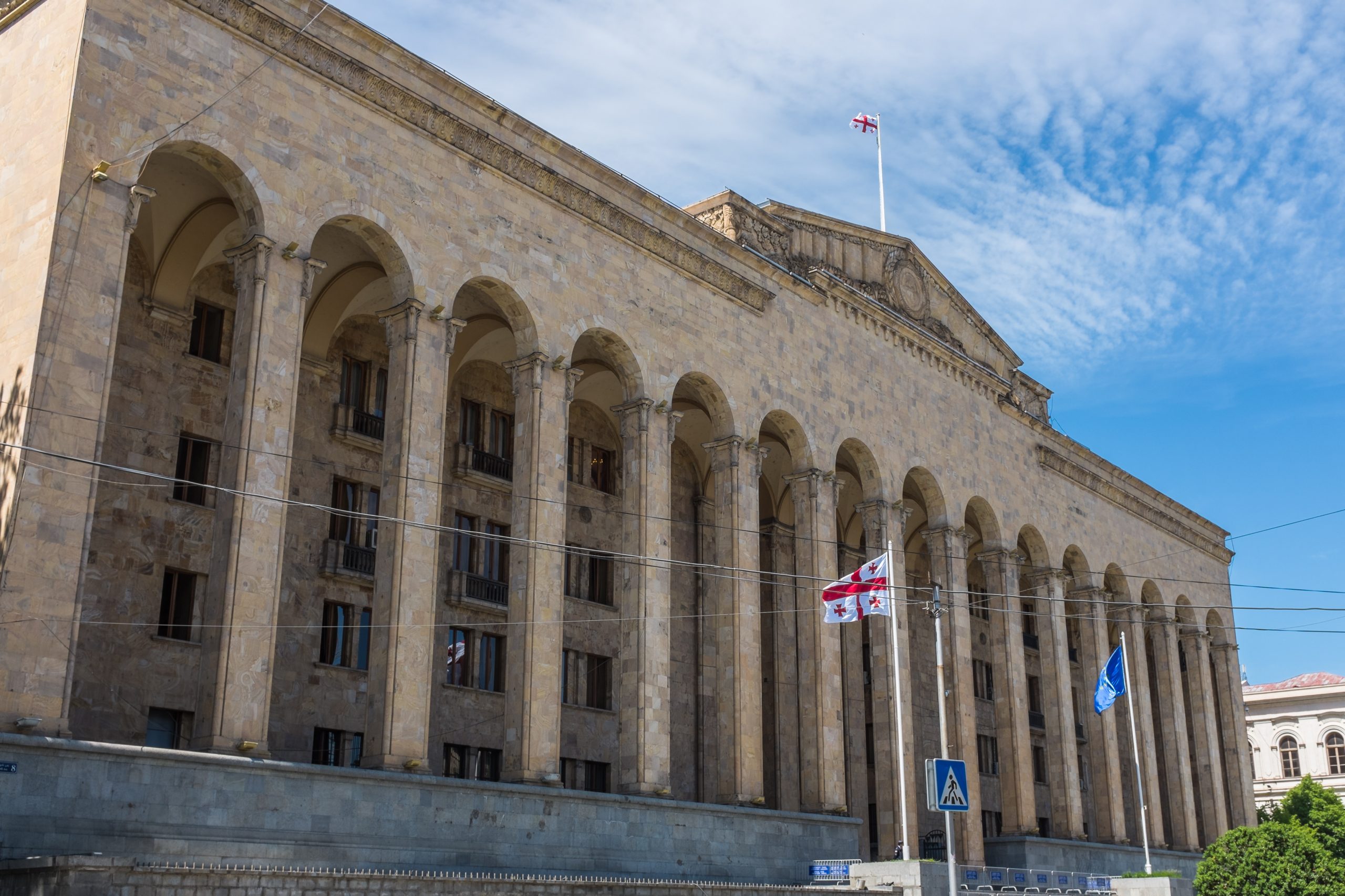
Georgian Parliament in Tbilisi, Georgia.

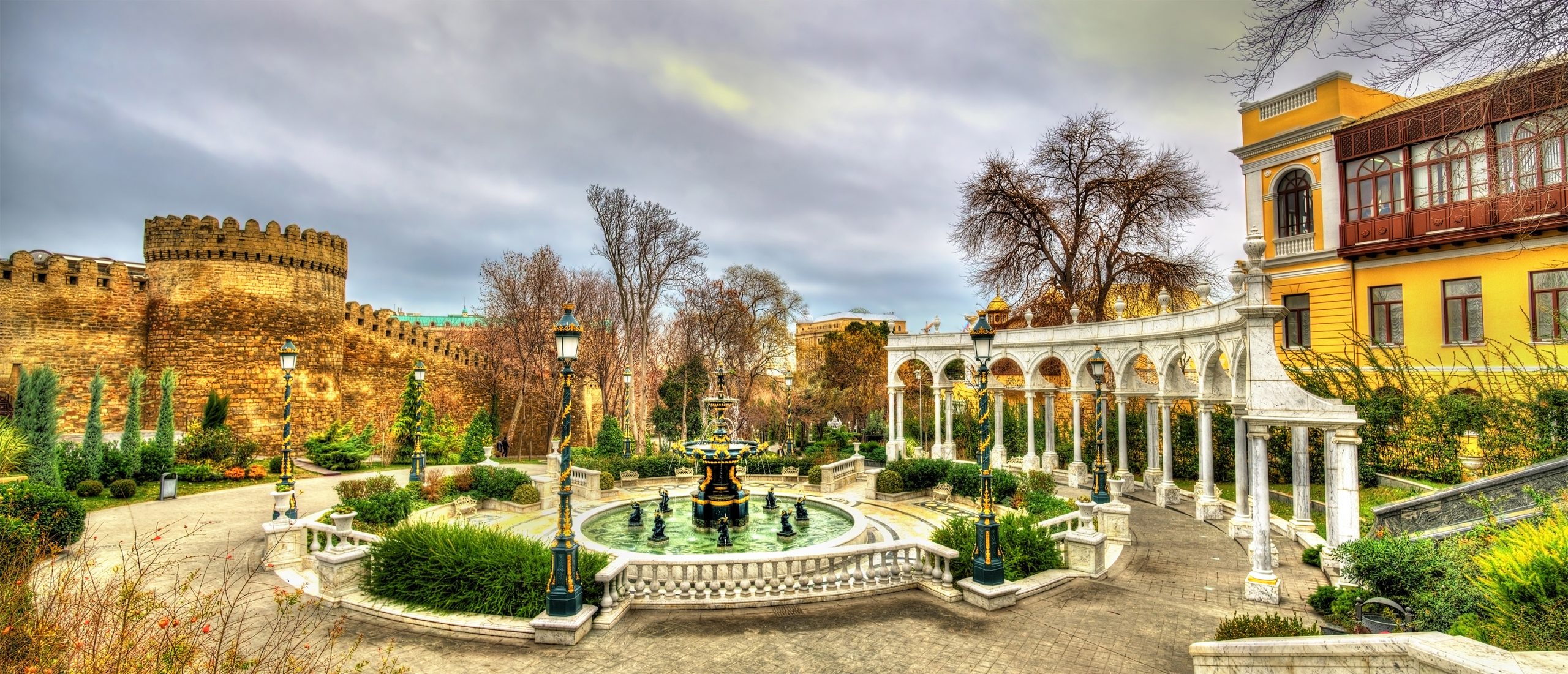
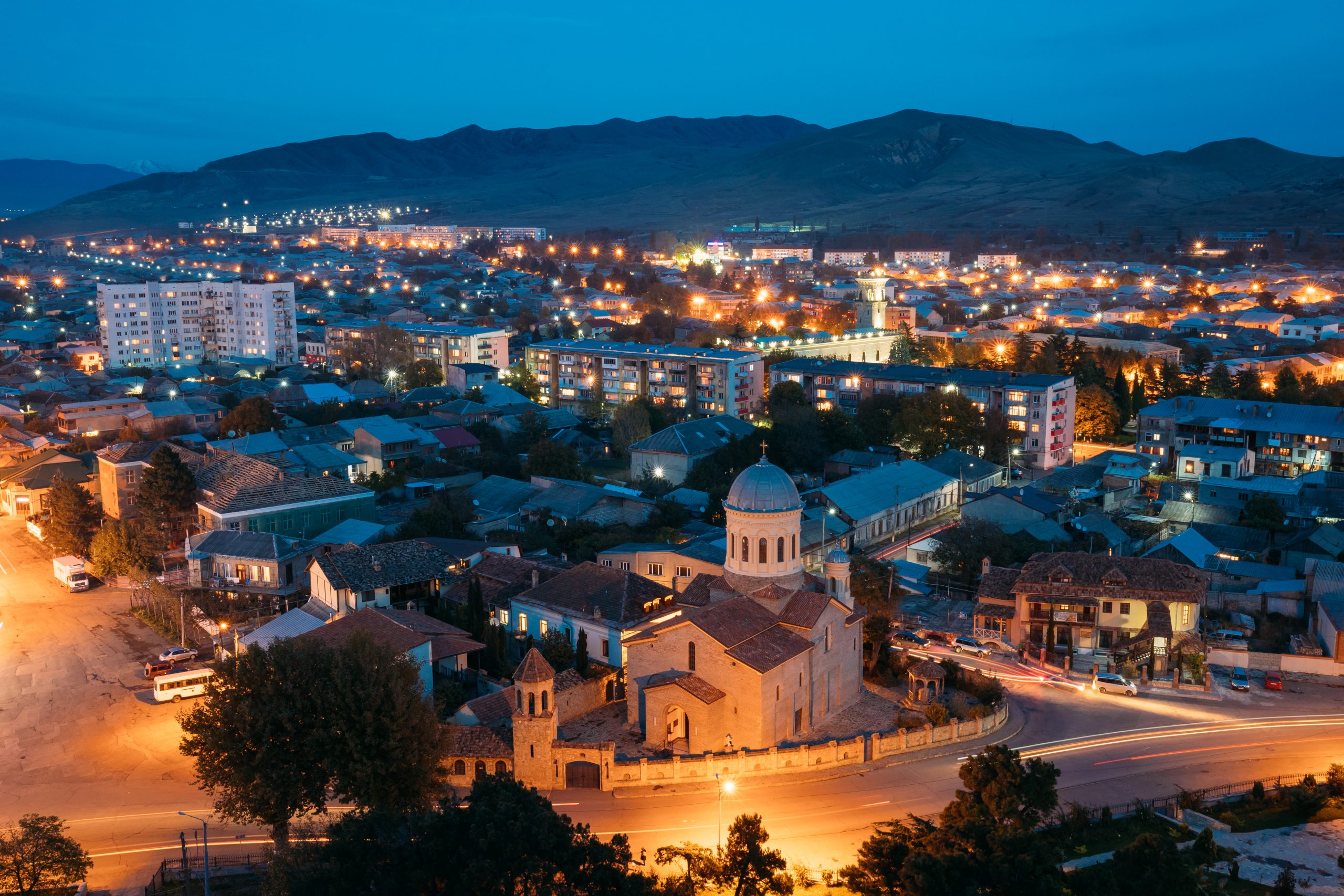
Contact us